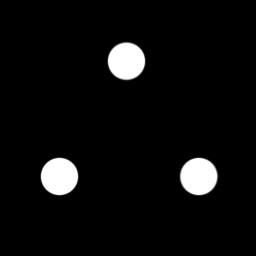Today we are launching undetweetable.com. It is a site that collects deleted tweets. Anyone can enter any twitter user in the database and it will start tracking their tweets that otherwise would have been deleted.
The project was created over the summer by graduate student Bradley Griffith in MobileLab, a research group in the Emerging Media + Communication (EMAC) program at UT Dallas.
Undetweetable is part art project, part curatorial effort, and part social media experiment. It’s the first in a series of new experimental projects from the lab that explore explore issues of identity, pseudonymity/anonymity, data ownership, authorship, and privacy. These are areas Brad and I are both interested in, and undetweetable exposes some aspects of them for people to experience for themselves directly.
The initial idea came from a desire to “collect” things on the Internet, exactly like a regular collector except things that could only be gathered online. For one year I ran a fictional character on twitter that had a small collection of such things, particularly things with emotional resonance. Collecting errors and regrettable outbursts seemed compelling, if somewhat nefarious (as was the character’s nature). Then as I was thinking about data ownership and privacy the idea popped up again in discussions with Bradley Griffith. He liked it, took it on over the summer and did all the development that is now undetweetable.com
At launch we are letting it bounce against the world to see what happens. Part of me thinks it’s an awful idea. Part of me thinks it will create a lot of interesting, even heated discussion (which already happened in our very limited private release). As a creative project, it is in progress, and is released as is, to be further iterated on as people use it and provide feedback.
One of the interesting things I noticed as Brad was developing it over the last couple of months is that I thought very carefully about deleting a tweet, which in turn made pressing send when composing one much less casual than before. Everything felt more permanent. Posting should feel permanent, but of course it doesn’t. And that’s the point. I’ve always wanted to create something that made people feel more tension when hitting “send” on a social network. This seems to work.
Tangentially, I also started worrying about my future deleted tweet stream: was it good enough? Would it be interesting? Would it form an alternate universe of tweets, an alter ego of sorts (like I need another one of those…).
Then I thought what if we created an account or character where all the tweets were deleted? That’s what we decided to do with our own twitter account @undetweetable, so to see the updates you’ll have to go to our deleted tweets page. I also thought about creating a fictional character that only “lived” in a deleted tweet universe. Hmmm.
Again the point of the experiment is to learn more about what we think and, just as important, feel about these things. To see what others think and feel. It is an education project after all, and I’m hoping that Brad & I learn, along with others, more about the issues we were interested in touching on through the illustration we have developed in Undetweetable.
Lastly I want to credit Brad with his tireless, excellent work on this project. It would only be a tiny blur of a thought in the mind of a fake twitter account if it weren’t for his efforts.
Notes
 free-registry-cleaner reblogged this from therefore
free-registry-cleaner reblogged this from therefore foreclosure-listings reblogged this from therefore
foreclosure-listings reblogged this from therefore vogdoid likes this
vogdoid likes this- amelias likes this
 hungryghoast likes this
hungryghoast likes this anarchivist reblogged this from therefore and added:
anarchivist reblogged this from therefore and added:ATTN username ameliaabreu
 therefore posted this
therefore posted this

